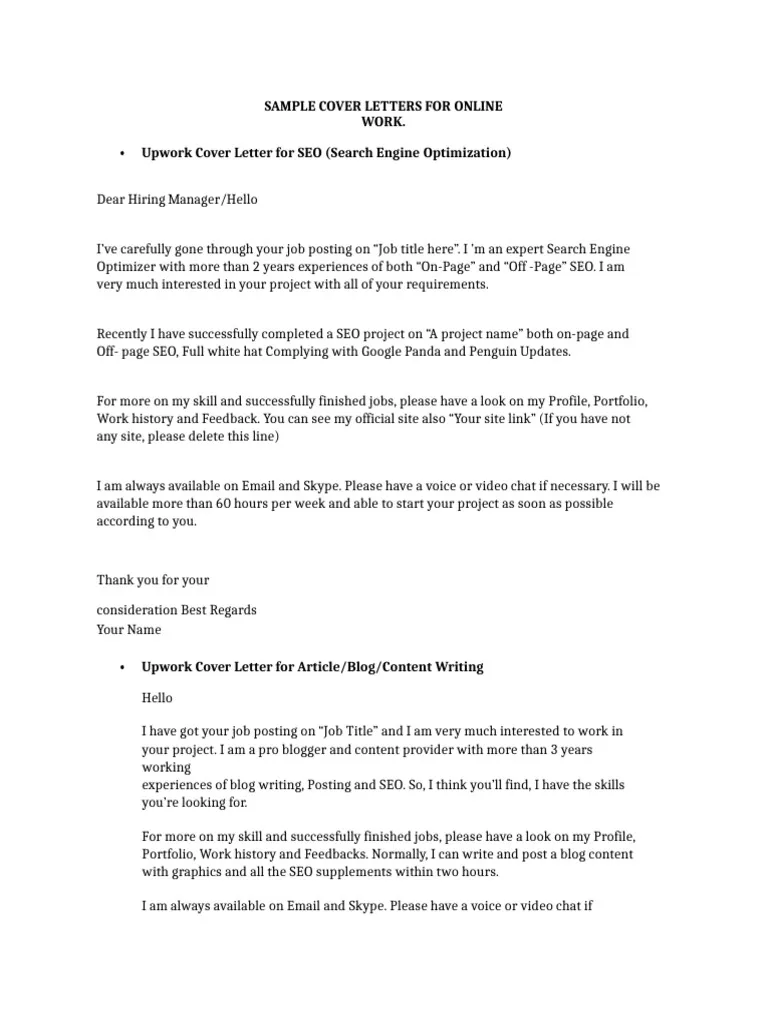Crafting a Standout Cover Letter
In the competitive landscape of online job applications, a well-crafted cover letter can be your most powerful ally. More than just a formality, it’s your chance to introduce yourself to a potential employer, articulate your value proposition, and demonstrate why you’re the ideal candidate for the role. While your resume provides a snapshot of your experience and skills, your cover letter allows you to tell your story, connecting your qualifications to the specific requirements of the job and showcasing your personality and enthusiasm. This guide provides essential insights into crafting a cover letter that not only stands out but also helps you secure your dream job.
Understanding the Importance of a Cover Letter
Many job seekers underestimate the impact of a cover letter, often treating it as a mere formality. However, in the online job market, where competition is fierce, a cover letter can be the deciding factor between getting an interview and being overlooked. It’s your opportunity to go beyond the basic facts presented in your resume and highlight your unique value proposition, demonstrating a clear understanding of the role and the company. A strong cover letter makes you memorable, showing that you’re not just another applicant but a person who has taken the time to understand the opportunity and is genuinely interested in the role. Failing to submit a cover letter, or submitting a generic one, can signal a lack of interest or attention to detail, immediately diminishing your chances.
Why is a Cover Letter Essential?
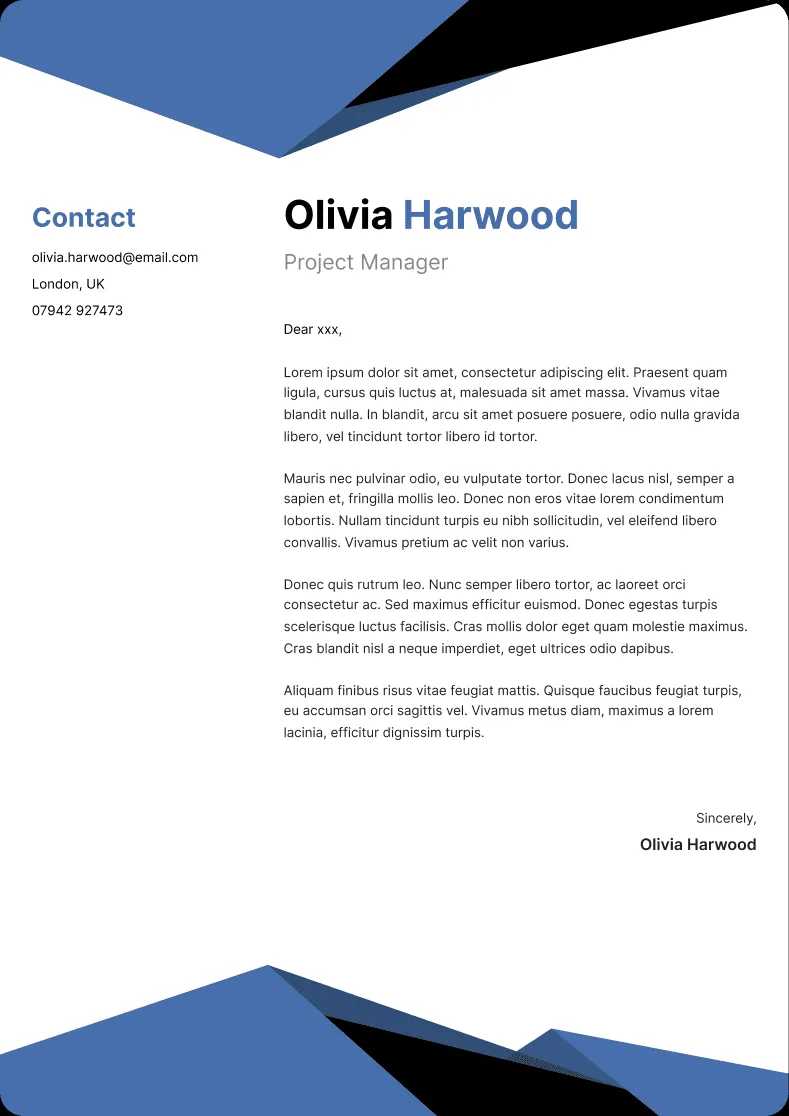
A cover letter serves multiple critical functions in the online job application process. First, it provides context to your resume, allowing you to explain gaps in your employment history, career changes, or any other nuances that might not be immediately apparent. Second, it gives you the space to showcase your personality, allowing potential employers to get a sense of who you are beyond your qualifications. This can be particularly important in online applications, where the initial interaction is often virtual. Third, a cover letter demonstrates your communication skills, your ability to articulate your thoughts and tailor your message to a specific audience, which is critical in many online roles. Finally, a cover letter allows you to demonstrate your genuine interest in the company and the specific role, which is a key differentiator in a competitive job market.
Key Elements of a Winning Cover Letter
A winning cover letter combines several essential elements to create a compelling narrative. The letter should start with a strong, attention-grabbing opening that immediately captures the reader’s interest, immediately conveying the role you are applying for, and where you found the job posting. The body should then highlight your relevant skills and experiences, showcasing your accomplishments and quantifying your achievements whenever possible. This is where you demonstrate how your experience aligns with the job description and what you can bring to the table. The letter should conclude with a clear call to action, expressing your enthusiasm for the opportunity and indicating your availability for an interview. Make sure to proofread your document.
Personalization: Tailoring Your Letter
One of the most critical aspects of a standout cover letter is personalization. Generic, mass-produced letters are easily identified and often discarded. Instead, tailor each cover letter to the specific job and the company you’re applying to. This involves researching the company’s mission, values, and recent activities, and referencing them in your letter to demonstrate your genuine interest. Furthermore, analyze the job description carefully and highlight the skills and experiences that directly align with the requirements outlined. Personalization demonstrates that you’ve invested time and effort in understanding the opportunity, making you a more appealing candidate.
Researching the Company and Role
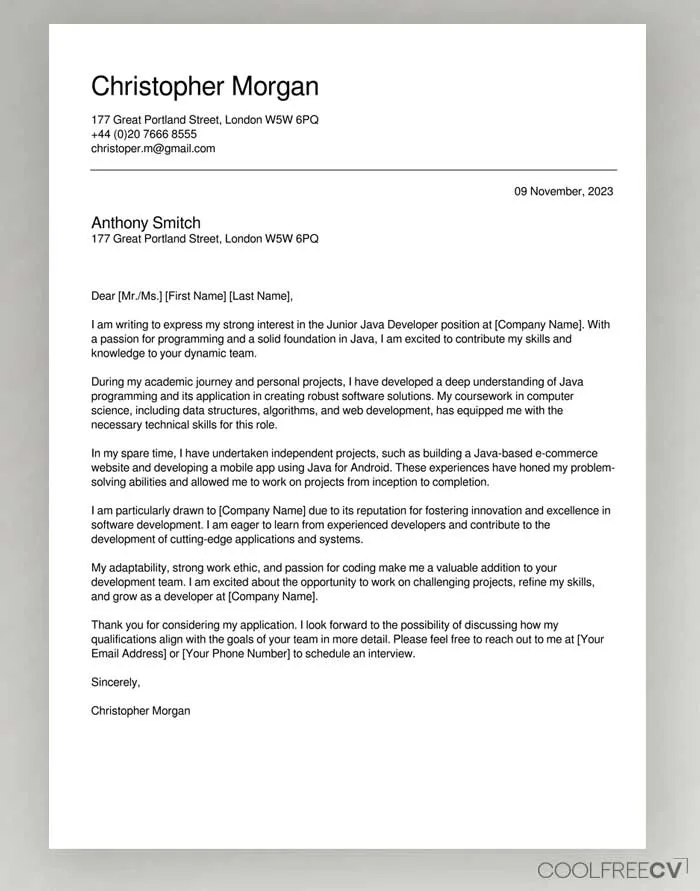
Thorough research is the foundation of a compelling cover letter. Before you start writing, visit the company’s website, read its ‘About Us’ section, and explore its social media presence. Understand its products or services, its target audience, and its overall culture. Next, carefully analyze the job description, identifying the key skills, experiences, and qualifications the employer is seeking. Identify the skills and experiences that match the job description, and also consider any additional skills or achievements that could be beneficial to the role. By integrating this research into your cover letter, you can show that you understand the company’s needs and can articulate how you can contribute to its success. Make sure to use keywords from the job description.
Highlighting Relevant Skills and Experiences
Your cover letter should be a showcase of your relevant skills and experiences, but it’s not just about listing your qualifications. It’s about demonstrating how your skills and experiences align with the specific requirements of the job. Start by identifying the key skills and experiences outlined in the job description and then provide specific examples from your previous roles or projects that illustrate these skills in action. Use action verbs to describe your accomplishments and focus on quantifiable results. Whenever possible, provide data-driven evidence of your achievements, such as increased sales, improved efficiency, or successful project completion. This approach not only demonstrates your abilities but also makes your accomplishments more memorable.
Showcasing Achievements and Quantifiable Results
Instead of merely stating your job responsibilities, focus on your achievements and the tangible results you’ve delivered. Use the STAR method (Situation, Task, Action, Result) to structure your examples. Describe the situation you were in, the task you were assigned, the action you took, and the positive result you achieved. For example, instead of saying ‘Managed social media accounts’, you could say, ‘Increased social media engagement by 30% in six months by implementing a new content strategy’. Quantifiable results provide concrete evidence of your capabilities and demonstrate the value you can bring to a new role. Use numbers to describe your achievements, such as percentages, dollar amounts, or units of work completed.
Formatting and Structure: Making a Great Impression
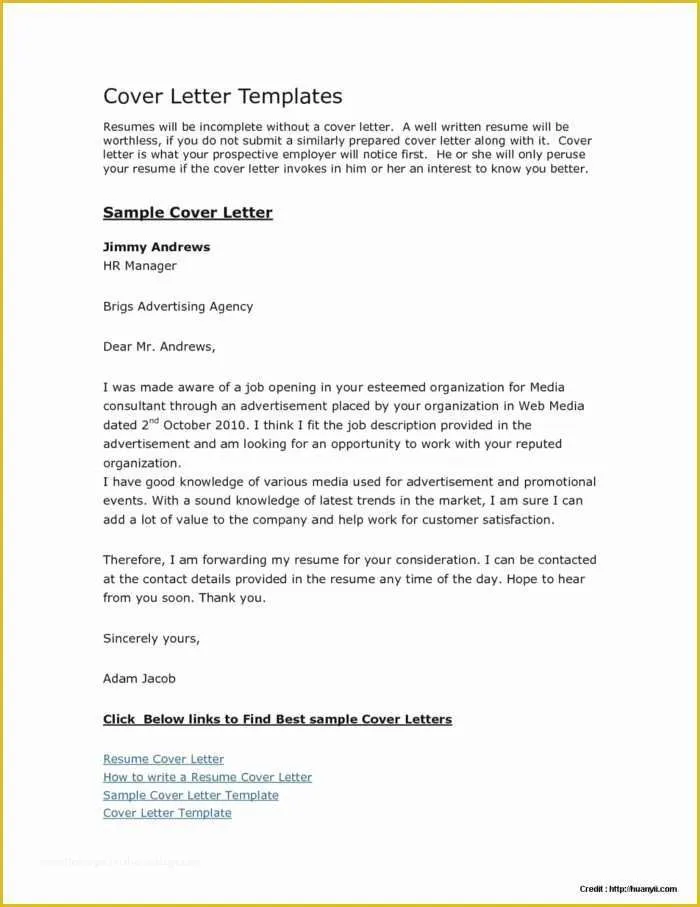
The format and structure of your cover letter are just as important as its content. A well-formatted letter is easy to read and demonstrates your attention to detail. Use a professional font like Arial or Times New Roman, and keep the font size between 10 and 12 points. Maintain consistent spacing and margins throughout the document. Ensure your letter is properly structured, with a clear heading that includes your contact information, the date, and the hiring manager’s contact information if available. Each paragraph should have a specific purpose, and the overall flow should be logical and easy to follow. Pay close attention to grammar, spelling, and punctuation, ensuring there are no errors. Consider using bullet points to highlight key accomplishments or skills.
Choosing the Right Tone and Style
The tone and style of your cover letter should be professional yet personable. Avoid overly formal language, but also refrain from being too casual or informal. The goal is to strike a balance that reflects your professionalism while showcasing your personality. Research the company culture and tailor your tone accordingly. If the company has a more casual and innovative culture, you can adopt a slightly more relaxed tone, but always maintain a degree of professionalism. Use positive and enthusiastic language throughout your letter, conveying your genuine interest in the opportunity. However, avoid using clichés or generic phrases that could make your letter sound impersonal. Instead, focus on specific details and examples to make your letter more engaging and memorable.
Using Action Verbs and Powerful Language
The language you use in your cover letter can significantly impact its effectiveness. Instead of passive language, use strong action verbs to describe your accomplishments and responsibilities. For instance, use verbs like ‘managed,’ ‘developed,’ ’led,’ ‘achieved,’ or ‘implemented’ to create a sense of energy and impact. Avoid vague language and generalities. Be specific and provide concrete examples that demonstrate your skills and experiences. Use keywords from the job description to align your letter with the employer’s needs. Also, carefully choose your words to convey your enthusiasm and genuine interest in the role and the company. Be concise and avoid using unnecessary jargon or complex sentence structures. Clear, concise language is more impactful.
Proofreading and Editing Your Cover Letter
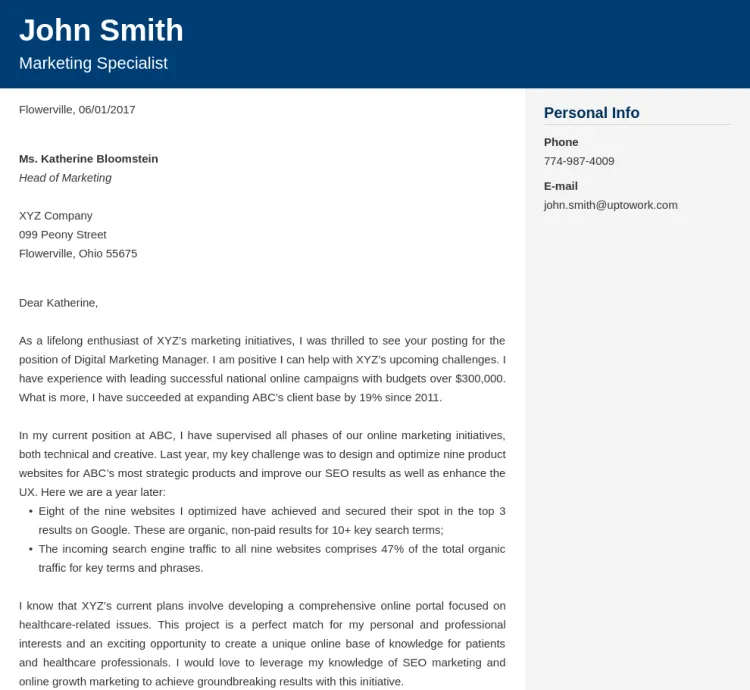
Proofreading and editing are crucial steps in ensuring your cover letter is polished and professional. Typos, grammatical errors, and other mistakes can undermine your credibility and make a negative first impression. Before submitting your cover letter, carefully proofread it multiple times, ideally after taking a break from writing. Check for any spelling errors, grammatical errors, and punctuation mistakes. Ensure that your formatting is consistent and that the letter is easy to read. Consider having a friend, family member, or career counselor review your cover letter for feedback. This can help you catch any errors you might have missed and provide an objective perspective on your overall message. A flawless cover letter demonstrates your attention to detail and commitment to excellence.
Avoiding Common Cover Letter Mistakes
Even the most qualified candidates can sabotage their chances by making common cover letter mistakes. Avoiding these pitfalls will significantly improve your chances of making a positive impression and securing an interview. Some common errors can be detrimental to your application. Being aware of these mistakes is key to submitting a cover letter that stands out.
Generic and Uninspired Openings
A generic opening is a missed opportunity to grab the reader’s attention. Avoid using clichéd phrases like ‘I am writing to express my interest…’ or ‘Please accept my application…’ Instead, start with a strong statement that immediately captures the reader’s interest. Mention the specific role you are applying for and where you found the job posting. You can also reference something specific about the company or the role that excites you. A unique and engaging opening sets the tone for the rest of the letter and encourages the reader to continue reading. A well-crafted opening demonstrates your enthusiasm and genuine interest in the opportunity.
Focusing on What You Want, Not What You Can Offer
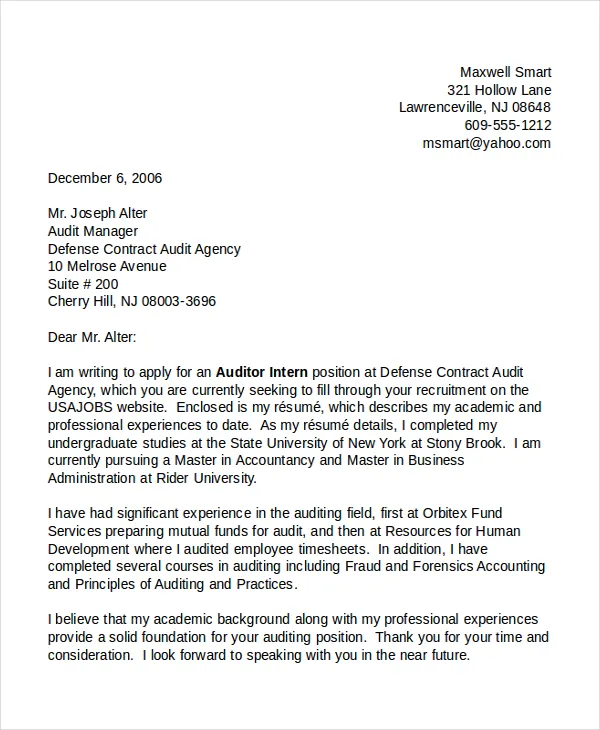
Your cover letter is an opportunity to demonstrate the value you can bring to the employer, not just to list what you want from the job. Avoid focusing solely on your needs and desires; instead, emphasize how your skills and experiences align with the company’s needs and how you can contribute to its success. Showcase your accomplishments and provide concrete examples of how you’ve solved problems, achieved goals, or improved processes in the past. Focus on the benefits you can bring to the company, and how your skills and experience can help them achieve their objectives. Make sure that the focus is on your achievements and your ability to help the company succeed. Demonstrate that you understand the role and the company’s priorities, and that you’re genuinely interested in contributing to their goals.
Ignoring the Job Description
Failing to address the specific requirements and keywords outlined in the job description is a significant mistake. The job description is your roadmap, providing valuable insights into what the employer is looking for. Carefully analyze the job description and identify the key skills, experiences, and qualifications required. Highlight the relevant skills and experiences you possess and provide concrete examples of how you’ve demonstrated them in the past. Use keywords from the job description throughout your letter to show that you meet the employer’s needs. Tailor your cover letter to each specific job, ensuring that you address the employer’s needs and that your qualifications are aligned with the requirements. Make sure to address each point required in the job description.
Submitting Errors and Typos
Typos, grammatical errors, and formatting inconsistencies can instantly damage your credibility. They demonstrate a lack of attention to detail and can lead employers to question your professionalism. Before submitting your cover letter, proofread it carefully multiple times. Check for any spelling errors, grammatical errors, punctuation mistakes, and formatting inconsistencies. Consider having a friend, family member, or career counselor review your cover letter for feedback. Use grammar and spell-checking tools, but remember that these tools are not foolproof. A flawless cover letter is a reflection of your professionalism and commitment to excellence. The lack of such attention to detail shows your true colors, possibly not the most desirable for the employer.
The Importance of a Strong Closing
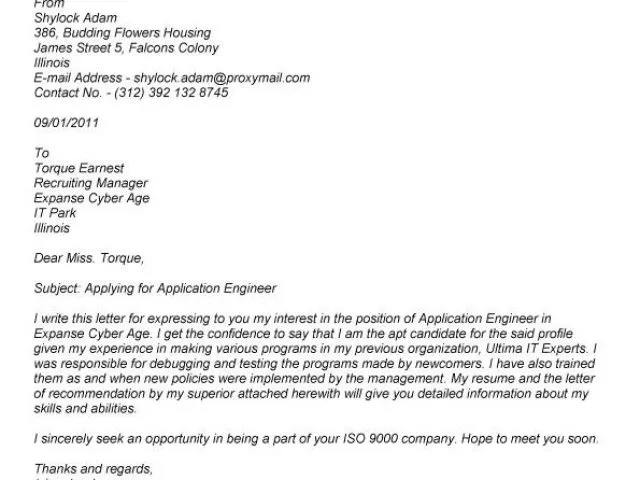
Your closing is your final opportunity to make a lasting impression. It should be clear, concise, and enthusiastic. Avoid generic closings like ‘Sincerely’ or ‘Best regards.’ Instead, express your enthusiasm for the opportunity and reiterate your interest in the role. Include a clear call to action, such as ‘I am eager to discuss how my skills and experience can contribute to your team, and I welcome the opportunity to speak with you further.’ Thank the hiring manager for their time and consideration, and make sure to include your contact information. A strong closing leaves a positive impression and encourages the employer to take the next step in the hiring process.
Expressing Enthusiasm and Next Steps
A compelling closing should express your enthusiasm for the opportunity and clearly state your next steps. Reiterate your interest in the role and highlight why you are a good fit for the company. Be proactive and indicate your availability for an interview. Provide your contact information, including your phone number and email address, making it easy for the employer to reach you. Thank the hiring manager for their time and consideration. A strong closing demonstrates your eagerness to move forward in the application process, leaving the employer with a positive impression. Your closing must show you know and understand the importance of the role.
